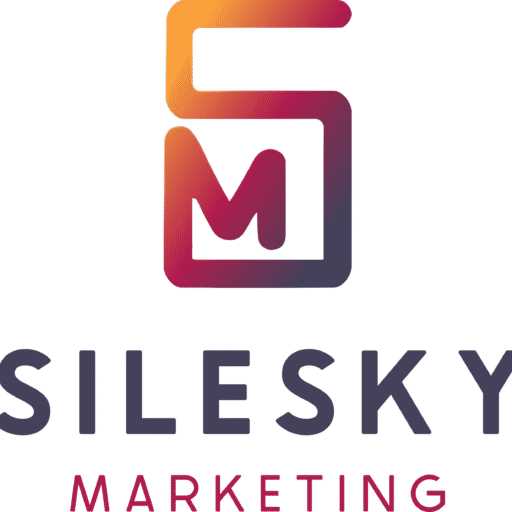How data privacy impacts digital marketing and customer trust is now a defining concern for businesses and consumers alike. Companies rely on data to personalize experiences, optimize campaigns, and measure engagement. However, increasing privacy concerns and evolving regulations are forcing businesses to rethink their approach.
Consumers expect brands to be transparent about how their data is collected, stored, and used. Regulations such as the General Data Protection Regulation (GDPR) and the California Consumer Privacy Act (CCPA) enforce stricter rules, making compliance a priority. Businesses that fail to adopt privacy-first marketing practices risk legal penalties, reputational damage, and loss of customer confidence.
By prioritizing responsible data collection, ethical marketing, and secure storage, businesses can maintain trust and long-term customer relationships. Companies that adapt to this privacy-conscious era will not only stay compliant but also strengthen their brand credibility in a competitive digital landscape.
The Role of Data Privacy in Digital Marketing
Data privacy is now a defining factor in how businesses develop and implement marketing strategies. New privacy laws and shifting consumer attitudes require brands to rethink how they collect, store, and use customer data.
Ways Data Privacy Affects Digital Marketing
- Regulatory Compliance – Laws such as GDPR and CCPA require companies to obtain user consent before collecting personal data.
- Decline of Third-Party Cookies – Companies must transition to first-party data collection for audience insights.
- Enhanced Consumer Control – Users have the right to access, modify, or delete their personal data.
- Stronger Security Requirements – Businesses must implement encryption and authentication to protect sensitive data.
- Impact on Ad Targeting – Restrictions on tracking limit the effectiveness of traditional digital advertising.
How Businesses Can Adapt
- Leverage First-Party Data – Collect insights directly through website interactions, surveys, and email sign-ups.
- Adopt Privacy-Compliant Analytics – Use tools that measure engagement without storing personal identifiers.
- Implement Consent-Based Marketing – Offer clear opt-in and opt-out options for data collection.
- Communicate Transparency – Provide easily accessible privacy policies and updates.
By embracing ethical marketing practices, businesses can maintain audience engagement while complying with evolving privacy regulations.
Why Customer Trust Relies on Data Privacy
Customer trust is critical for business success. A 2023 Cisco survey found that 81% of consumers consider a company’s data protection efforts a key factor in determining trustworthiness. Mishandling data can lead to loss of confidence, negative publicity, and regulatory scrutiny.
Factors That Build Consumer Trust
- Clear Privacy Policies – Customers appreciate transparency in how their data is collected and used.
- Strong Data Security – Encryption, authentication, and firewalls protect consumer information.
- User Control Over Data – Businesses that allow users to manage their data preferences earn more trust.
- Accountability and Responsiveness – Companies that quickly address privacy concerns demonstrate reliability.
Consequences of Poor Data Privacy Practices
- Loss of Customer Trust – Once lost, trust is difficult to regain.
- Legal and Financial Risks – Fines and lawsuits can significantly impact business operations.
- Reputational Damage – High-profile data breaches lead to negative media attention and brand distrust.
Best Practices for Strengthening Trust
- Publish Clear Privacy Policies – Ensure policies are easy to understand and readily accessible.
- Secure Consumer Data – Invest in cybersecurity tools to prevent unauthorized access.
- Empower Customers – Provide users with control over their data preferences.
By prioritizing customer data protection, businesses can reinforce trust and strengthen their brand reputation.
How Digital Marketers Can Adapt to a Privacy-First Landscape
The decline of third-party tracking and increased privacy regulations require marketers to rethink their engagement strategies. Invasive tracking is no longer viable, and businesses must shift to ethical, consent-driven campaigns.
Privacy-Friendly Marketing Strategies
First-Party Data Collection
- Gather data through customer interactions, loyalty programs, and email sign-ups.
- Offer value exchanges, such as discounts or exclusive content, for voluntary data sharing.
Contextual Targeting
- Display ads based on webpage content rather than user behavior tracking.
- Use keyword-based targeting to align ads with relevant topics.
Privacy-Compliant Analytics
- Implement analytics tools that track engagement without storing personal identifiers.
- Use AI-driven insights to personalize marketing without violating privacy laws.
Permission-Based Marketing
- Require explicit opt-ins for email lists and promotional campaigns.
- Offer users privacy settings to customize data-sharing preferences.
Enhanced Security Measures
- Apply multi-factor authentication to protect sensitive customer data.
- Conduct regular security audits to detect vulnerabilities.
By adopting privacy-first digital marketing techniques, businesses can engage audiences while respecting their data rights.
The Future of Digital Marketing in a Privacy-Centric World
As data privacy laws evolve, digital marketers must prepare for a future where ethical, transparent engagement is the standard.
Emerging Trends in Privacy-First Marketing
- Zero-Party Data Collection – Encouraging customers to voluntarily share their preferences for tailored experiences.
- AI-Powered Personalization – Leveraging machine learning to optimize marketing strategies without invasive tracking.
- Stronger Global Privacy Regulations – More governments implementing GDPR-like laws to enhance consumer protections.
- Privacy-Focused Branding – Businesses using privacy as a competitive advantage to differentiate themselves.
Companies that embrace ethical marketing practices will build stronger customer relationships and maintain long-term success.
The Path Forward: Building Trust Through Privacy-First Marketing
Data privacy is transforming digital marketing, making customer data protection a priority for businesses worldwide. As regulations increase and consumers demand more transparency, companies must shift toward privacy-first digital marketing strategies to maintain compliance and trust.
By committing to ethical data practices, businesses can build lasting relationships with their customers while staying compliant in an evolving digital landscape.





